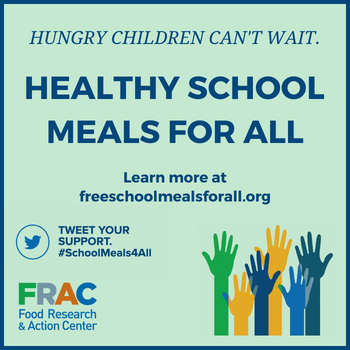
The U.S. Department of Agriculture’s (USDA) Food and Nutrition Service (FNS) released a proposed rule on September 25, 2025, to update staple food-stocking standards for retailers participating in the Supplemental Nutrition Assistance Program (SNAP). While improving access to nutritious food is an important goal, the proposed rule raises serious concerns about weakening food access for SNAP participants.
March 2–6 marks National School Breakfast Week — a time to celebrate the power of the federal School Breakfast Program nationwide and to recognize the vital role it plays in helping students learn, grow, and thrive.
Every great hero’s journey starts with a moment of preparation — a chance to gather strength, sharpen focus, and step boldly into the day ahead. For millions of students across the country, that moment is school breakfast.
